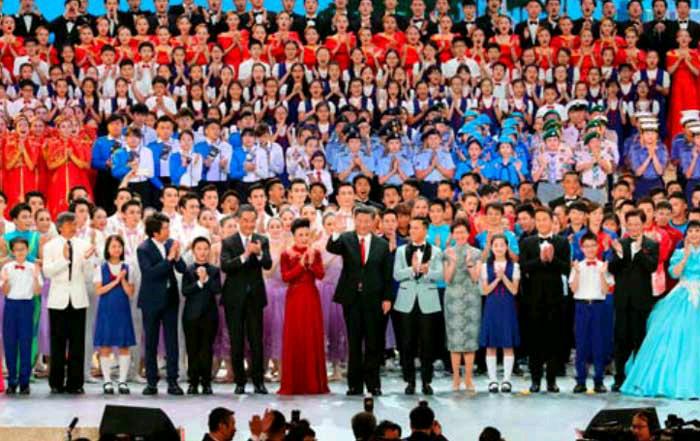20 Years On,Hong Kong Prospers under“One Country, Two Systems”
2017-07-19
“Development, an abiding pursuit, is crucial for Hong Kongs survival, and it holds the golden key to resolving various issues in Hong Kong,” Chinese President Xi Jinping said when attending a gathering celebrating the 20th anniversary of Hong Kongs return to the motherland and the inaugural ceremony of the fifth-term government of the Hong Kong Special Administrative Region (HKSAR) at the Hong Kong Convention and Exhibition Center on July 1, 2017.
Two decades ago, the world watched on July 1, 1997 as the Union Jack was lowered over Hong Kong and the five-star red flag of China raised in its stead. British colonial rule came to an end and a new dawn broke over Hong Kong, as it was returned into the welcoming arms of the motherland.
Since then, the HKSAR has been run under the guidelines of “one country, two systems,” “Hong Kong people governing Hong Kong” and with a high degree of autonomy.
Today, as the world turns its attention to the metropolis 20 years on, what does it see? A Hong Kong more dynamic than ever before, and one thriving under “one country, two systems.”
World Bank data show that Hong Kongs indicator of the rule of law, a core value of Hong Kong society, has jumped from behind 60th in the world in 1996 to 11th place in 2015, well ahead of some major Western countries.
Hong Kongs economy has grown by an average of 3.2 percent each year since 1997, quite remarkable for an economy which was essentially already “developed”20 years ago.
Among 63 economies, this years edition of the International Institute for Management Development (IMD) World Competitiveness Yearbook ranked Hong Kong as the most competitive, followed by Switzerland, Singapore and the United States. It is the second year in a row that Hong Kong has occupied the top spot.
These accomplishments have come amid Asian and global financial crises and the SARS outbreak—choppy waters indeed, which Hong Kong has navigated only with the support of the central government.
The last 20 years have fully proven that “one country, two systems” is not only the best solution to the historical Hong Kong question, but also the best institutional arrangement for the long-term prosperity and stability of Hong Kong after its return to the motherland.
China is now embarking on an array of development initiatives that the HKSAR could contribute to and benefit from, such as the Belt and Road Initiative, the internationalization of the renminbi, and the building of the Guangdong-Hong KongMacao Greater Bay Area city cluster.
Hong Kong could dovetail itself with the countrys major national development initiatives and needs to unleash its formidable potential.
Just as Lam Cheng Yuet-ngor remarked in a speech after being sworn in as the Chief Executive of the HKSAR, “As we capitalize on our strengths and harness the opportunities presented by our countrys development, Hong Kongs future is indeed bright and promising.”